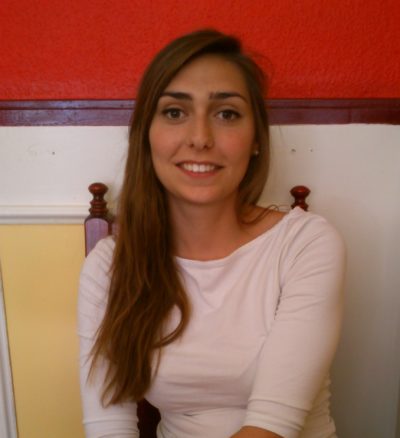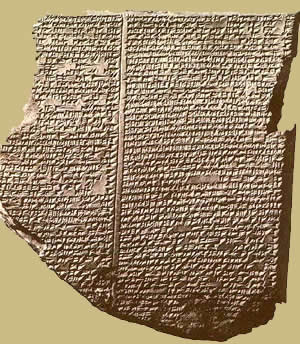Accepted to Oxford Law from the Bachelor of Humanities Program
Recent graduate of the Bachelor of Humanities program, Leonor Vulpe Albari, has just received some very exciting news.
Albari, who graduated from Carleton in 2014 and is now in the midst of wrapping up a Master’s of Law (LLM) at Maastricht University in the Netherlands, has just learned that she has been accepted to a variety of prominent law schools all across the globe, including admittance to the University of Oxford’s Graduate degree in the Faculty of Law.

Albari’s story is an inspirational example of what can be accomplished through the liberal arts. This spring, she generously took time out of her busy schedule to discuss life and learning in the Bachelor of Humanities program and what it takes to achieve academic excellence.
Why did you choose Carleton University’s Bachelor of Humanities program?
When I was finishing high school, I really didn’t know what to do next.
I knew that I probably wanted to go into the general arts, rather than the maths and sciences, but I wasn’t even sure about that! It was my dad who first told me about the HUMS program. I looked into it, and I thought the courses were interesting. I was also very interested in doing a year abroad, which the HUMS program encourages students to do.
Since I wasn’t sure about what career I wanted, I decided to study something that I liked, and in a program where I could develop skills that would be useful to me later. The HUMS was perfect for me since I could study a mix of philosophy, history, religion, political science, ancient civilizations, and so on, and it was a small program where I could learn to write essays properly, read interesting texts and –well– just think about the world.
Could you describe your general experience of the HUMS program?
I think one of the best aspects of the HUMS program is that in every core class there are two professors and only about 50 students. The professors attend all your discussion groups so they are able to give students a lot of help and guidance. I took a political science class in first-year and there were a couple hundred students for one professor; in those situations, it’s simply not possible to get much help from a professor. Though I know some students do well in big classes, I personally enjoyed the smaller class sizes in HUMS. Most professors were also very willing to meet outside class time with students to discuss the readings, assignments, etc. I took advantage of that a lot, and before I would start writing an essay I would often discuss the outline with my professor and make sure I was on the right track.
As well, in first-year you spend the year slowly learning how to write essays. You start with one-page papers, then two-page papers, and by the end of the year you are finally writing six-page papers, but they are (hopefully!) excellent six-page papers. This first year taught me how to write essays and to organize my ideas, and that skill has been extremely useful for me since I left HUMS.
How did your personality click with the College of the Humanities?
In first-year, I really enjoyed my HUMS classes, but I didn’t attend many HUMS events and my social circle revolved mostly around the varsity water polo team I was playing on. It was not until the middle of second-year that I think I really ‘clicked’ with the program. I loved the texts we were studying, and I started to spend more time in the HUMS lounge and meet more people in the program. I also started attending HUMS events, and even non-HUMS events in Ottawa about philosophy or politics.
Could you discuss some of the “great books” that helped to form your personal perspectives and which may have lead you to study law?
Though of course there were some texts that I preferred over others, I think every book we read has somehow shaped my world view. I don’t think there was one text in particular that pushed me to do law. Rather, I learned a lot from the program as a whole, and after HUMS I wanted to apply that knowledge to the present, and in a more practical way—which I thought I could do with law. You read such a variety of texts in HUMS, from the Old Testament and Plato’s Republic, to Shelley’s Frankenstein and Nietzsche’s Beyond Good and Evil, that you end the program with a well-rounded view of the world.
Since I wasn’t sure about what career I wanted, I decided to study something that I liked, and in a program where I could develop skills that would be useful to me later. The HUMS was perfect for me since I could study a mix of philosophy, history, religion, political science, ancient civilizations, and so on, and it was a small program where I could learn to write essays properly, read interesting texts and –well– just think about the world.
One text that I would recommend and which has perhaps influenced me the most is the Epic of Gilgamesh. It is an ancient Mesopotamian epic poem about the king of Uruk, Gilgamesh. For me, Gilgamesh is a man who, through a series of events and realizations, comes to the understanding that there is an insurmountable difference between him and the gods: mortality. This text showed me that despite the fact that people and society have changed drastically throughout time, ultimately we are all human. Gilgamesh, a king from thousands of years B.C. must face the simple fact that he will die, just as we must today.

Did you participate in the mentorship program?
I participated in the mentorship program during my fourth year in HUMS. I needed help deciding what to do next; I had applied to some programs in Canada, including NIPSIA at Carleton, and to programs in the Netherlands. The mentorship program coordinator, Barbara Garner, put me in touch with a graduate of The Norman Paterson School of International Affairs (NPSIA). Though I ended up choosing the Master’s of Law (LLM) at Maastricht University in the Netherlands, it was helpful to talk to my mentor about his experience at NPSIA. My mentor also gave me information about how a degree from abroad would be received in Canada.
You have some serious decision making and planning to do. Can you speculate on your next steps?
I have decided to go to law school and I am currently trying to decide between McGill and Oxford. At the moment, I’m switching back and forth between these two options, so I am not quite sure what I will do next year. What I do know is that I hope to become a lawyer, and to work in the area of international law.
I think it is in large part thanks to HUMS that I have the luxury of this choice. One of the reasons I did so well during my LLM in the Netherlands is that I have learned to write clearly and precisely, to read, and to think (to put it simply), which my years in HUMS taught me. As well, I know HUMS, and now the LLM, have prepared me well for whichever university I decide on.
Any parting words of wisdom?
I would like to thank my professors! Some of them met with me countless times to help me with my essays, or just to discuss questions I had, and I will always be grateful to them.
If you don’t know what you want to study in university, chose something you enjoy and that will give you tools you can use in many settings. Though the HUMS program did not give me a ‘predestined job’ after graduating, I think it was the best program I could have chosen because I enjoyed it and because I developed important skills, which I am now using in law. I learned to write a proper essay, think critically, analyze and summarize texts, and, more importantly, I learned about the world around me—its past and its present. I carry what I learned in the HUMS program with me, and I don’t think I would have as many opportunities today if I did not have the foundation that the HUMS program gave me.
Read Albari’s classmate Roy Sepgunta’s interview. Much like Albari, Sepgunta was recently offered admission to an array of prestigious graduate school opportunities, including admittance to Harvard’s the eminent Harvard Law School.